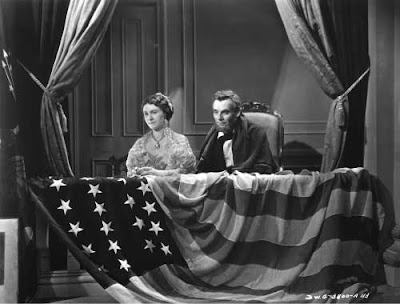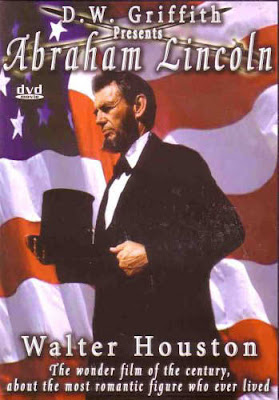When this film was directed by D.W. Griffith and released in 1930 it found
a receptive audience with critics praising it for the acting and scope of
the story. It was Griffith's first talking picture and he was basically at
the end of his great career. Griffith had done so much for films with hundreds
of short films and epic features - he was the one that moved the business
to Hollywood and brought so many stars and directors into the industry. Birth
of a Nation (1915) though tremendously popular at the time among white audiences
has put a huge dent into his reputation - not for the film which is considered
brilliant for its technical and cinematic innovations but for the subject
matter of the KKK, the racist content and the romanticizing of the Confederacy
- something that is still with us today. There was a fair amount of anger
as well directed at the film and at Griffith - and so the next year he directed
Intolerance which was in response to this. And with this film, perhaps he
was still answering back with a positive portrayal of Lincoln and again recreates
his assassination as he had in Birth of a Nation.

But time has not been kind to this film - it has shown it no mercy - and
no doubt because of the technical challenges with sound and Griffith's inexperience
with dialogue this film is as creaky as I feel getting out of bed in the
morning after a very bad sleep. The poor delivery of the bad dialogue (written
by Stephen Vincent Benet who was quite famous for his epic poem John Brown's
Body that covers the civil war) is painful to sit though. Even Walter Huston
(father of John) who was to become a fine actor is dreadful here often sounding
like W.C. Fields trying to be Lincoln. Griffith who was justly famous for
his epic films keeps this one very small and short. He rips through Lincoln's
life from birth to death in 90 minutes. And much of it is just Lincoln inside
mulling and talking. Obviously, this was a huge opportunity for some of his
large-scale battle scenes but he gives us only one of Sheridan racing to
save the battle. No Gettysburg, Bull Run, Shiloh, Sherman. A bit of Grant
smoking. His wife Mary Todd comes off as a shrew which may have been historically
true. There is no grandeur in the story or the spirit and it isn't until
Lincoln is assassinated, and the camera closes in on the Lincoln Memorial
to end the film that you feel anything. A great man reduced to a shadow.




